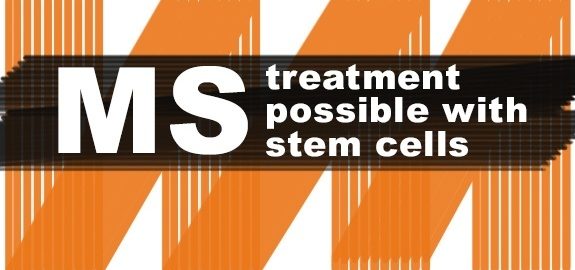Immune System Reboot Using Autologous Stem Cells Proves Effective in the Treatment of Aggressive Multiple Sclerosis

Recent results from a phase 2 clinical trial using stem cell transplantation have offered new hope for the treatment of aggressive multiple sclerosis. Multiple sclerosis (MS), while not a deadly disease, is known as severely debilitating, slowly deteriorating a patient’s entire nervous system. An aggressive form of MS rapidly results in failure of the nerves that control movement and senses, often leaving patients wheelchair-bound and blind.
MS is considered by most to be an auto-immune disease, resulting from the patient’s own immune system attacking the myelin sheaths, or lining of nerve cells in the brain and spinal cord. The inflammation and damage to the central nervous system results in the neurological symptoms of MS. Most of the injury is irreversible and repeated attacks lead to progressive neurological failure.
Current treatment options are limited. They aim at reducing the number of MS attacks and slowing the progression of the disease. Treatment is moderately effective in milder forms of MS (relapsing-remitting), but in the aggressive form of MS, no drugs are currently available. The remainder of treatment involves high doses of corticosteroids to reduce the symptoms of the MS attack.
The pivotal trial, conducted at three Canadian hospitals and published in The Lancet in June 20161, is the first study to show promise in halting the progression of the disease and even offered substantial recovery of neurological function in many of the test subjects, a first in the treatment of MS. The therapy involves immunoablation followed by transplantation of autologous hematopoietic stem cells (i.e. the patient’s own stem cell precursors to the blood cells that contribute to the immune system) (aHSCT). Under the assumption that the immune system is dysfunctioning, the patient is given chemotherapy to “ablate” or remove the immune cells and bone marrow that are doing the harm. Before this is done, hematopoietic stem cells are extracted and stored frozen so they can be infused back into the patient to replace the destroyed immune system. This in effect replaces the failing immune system with a newly grown one originating from the patient’s own stem cells. Although this is a new treatment for MS, aHSCT is already used for cancers of the immune system, including leukemia and lymphoma.
Twenty-four patients were included in this study, all with a progressive form of MS. These patients had an average of greater than one relapse of their disease per year prior to the study. During the almost seven years of follow-up, none of the successfully treated patients (95 percent) had any clinical relapses or new lesions on their MRI scans. But what is most notable in this study is the remarkable recovery that some of the patients have made since the treatment. aHSCT is the first to show a reversal of neurological deterioration in MS.
The treatment, however, is considered very aggressive. Removal of the patient’s immune system is obviously a highly dangerous procedure leaving the patient very susceptible to infection. In the Canadian study, one of the 24 patients died from a treatment related infection 62 days after transplantation, and various more benign infections were seen in these patients with weakened immune systems. As a result, the authors advise caution in the application of aHSCT, suggesting it be reserved for aggressive MS with a poor prognosis.
1Atkins, Harold L et al. Immunoablation and autologous haemopoietic stem-cell transplantation for aggressive multiple sclerosis: a multicentre single-group phase 2 trial
Image courtesy of http://www.corcell.com/


